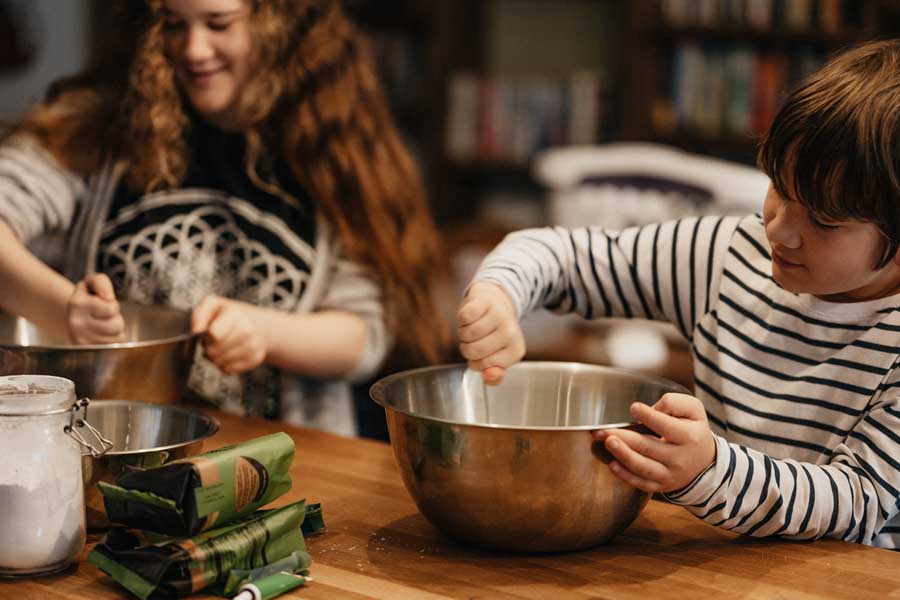Our children sometimes have difficulty with concentration and focus. From stress to ADHD, many obstacles can ruin our children’s focus and concentration.
Children who are gifted, neurodivergent, or neurotypical all struggle with focus-related issues from time to time. Knowing how to improve children’s concentration and focus is a challenge. What can we do to improve our child’s access to their brilliance and their ability to focus and concentrate enough to translate their brilliance to the world?
In this article, I would like to share some tricks that may just unlock your child’s mind, allowing them to show what they can really do in school, at home, and in life in general. Here’s how to improve your children’s focus and concentration.
What Steal Your Child’s Concentration and Focus?
We have all heard the droning on of grandparents, media, politicians, other parents, and often, even ourselves, about screen time and the evils it unleashes on society. I’m here to tell you that is both true and very very false. Let me explain.
Your child’s attention span isn’t being hampered by technology. After all, they can concentrate on video games for hours. Am I right?
Your child’s attention span is being stolen, simply by being replaced with something more interesting or distracting than the homework that they are required to complete (or whatever it is they are having trouble with).
Maybe your child is struggling with something like ADHD that is robbing their brain of its ability to captivate thoughts—again, being stolen by a more pressing issue, feeling, or subject.
Anxiety-inducing meltdowns can also inhibit your child and make it nearly impossible to focus on the task at hand.
Possibly, your child could also struggle from boredom. If the material is too easy for them, they may just need to be challenged more.
Stress or too much energy can also take a toll on a young mind. Sometimes, they need to move but are required to be still.
Because of this, one of the easiest ways to help them re-engage is to find new and innovative ways to present information to them that piques their interest while allowing them to get the job done.
How to Improve Your Child’s Concentration And Focus
When the pandemic forced most children to learn at home early in 2020, many parents were terrified.
I spoke with one mom who said her youngest child, Owen, was already much smarter than her at six years of age! Math especially posed quite a challenge for both mother and son.
You see, although Owen is gifted in math, his ability to concentrate and focus took a nosedive outside of his normal structure and routine.
1. Utilize Their Interests
Owen’s mom needed something that would help him learn, foster independence, and help him be more interested in the content. She found a math book that was based on one of his favorite video games. It asked him math-related questions like, “There are 10 zombies chasing you, 7 zombies fall into a lava pit, how many zombies are still chasing you?”
He loved it! Math time became his favorite, and he could go at his own pace. This eliminated two causes of lack of focus for the family: meltdowns and boredom.
2. Time
Nothing kills productivity like pressure. Though some of us work best under pressure, many people don’t. The difference between working best under a deadline and being stressed to the point of distraction is time management.
Make sure you and your child have allotted the right amount of time in which to complete the task. Next, allow your child’s needs to dictate the time of day they complete tasks that require focus and allow time within that framework for breaks and time lost because of distractions.
For some children, racing a clock can be a great concentration tactic. Seeing if they can get the task done or a step of a task in a certain time frame may help them focus. A little competition can go a long way, even if they are competing against themselves.
3. Tools
Make sure you have all the tools required for the task your child needs to focus on. Nothing says distraction like being unprepared. That being said, allotting time for material and tool gathering is a good way to break up the task into smaller portions.
For instance, if the project is due in a week, gather the materials and tools today. That way, when creativity strikes, all the items needed are there in advance ready to be utilized. This saves time, especially by eliminating the need for late-night store runs.
4. Switch It Up
Just like with Owen, switching the content up a bit and using a theme of something he loved helping. Try presenting the material in a fresh new way while maintaining the relevant requirements.
Let them read things they are interested in, in exchange for reading a paragraph of something they are not. Let them do math in the sand instead of on paper. Creative learning is so much fun!
I think we all have a somewhat traditional view of what it looks like to do something that requires focus and concentration. For example, sitting at a table or in a classroom, as opposed to being outside or completing tasks with our hands. Let me offer alternatives.
Fidgets can be utilized while completing a task. If your child’s brain is occupied with a fidget toy, they may be able to concentrate better on the task. This can also go the other way, though. Each child is unique, and there is a fine line that could easily be crossed into distraction.
If your child is bothered by tags in their shirt, or a seam on their sock, their brain will not be able to focus. Some children need to walk or stand while completing tasks, others need no distractions and to be able to sit quietly. Step one will be to figure out what your child’s needs are.
5. Set the Scene
Once you figure out what your child is distracted with, you can move forward to setting the scene for them to work. This prep work can be a lifesaver.
Do they need to burn energy first? Let them run, go for a walk, do floor exercises, or go outside and play on the swing set first. Then, provide the quiet atmosphere in which they need to work.
Do they need to walk around while they are working? Consider letting them pace while telling you what to write or where to place and glue parts of their project. For children who concentrate best while moving, exercise balls and fidgets can come in handy.
Maybe they concentrate better on background noise. Consider allowing them to listen to podcasts, music, or the TV in the background. Letting them utilize technology while learning can help.
Make sure distractions are limited. Let them change clothing, use the bathroom, have a snack, or change rooms. What we see as distracting may not be a distraction to them. What doesn’t distract us might drive them crazy.
6. Practice, Practice, Practice
Creating a routine specific to your child is key. It isn’t about fitting the mold, it’s about breaking it. Practice creates muscle memory and predictability keeps it. Even if a regular change of pace is what your child needs, not being too structured can be a structure.
My point is, the methods can be as unique as your child. Whatever you decide to do, keep doing it. Your child will focus better just by following the steps over and over. Combine that with the above tips and you will be well on your way.
7. Rewards
Think of setting the scene, like a menu. You can choose anything and any combination of things, and make it work for you and your child. Also, don’t forget about dessert: rewards and praise.
Make sure you are praising your child when they are completing their mission and maintaining focus. They need to be excited about what works, too. They need the confidence-building that success brings. Let them know how proud you are of their efforts.
8. Get Some Help
Here is a list of things that can be part of your child’s environment to improve their focus and concentration:
- Essential oils
- Exercise equipment: exercise ball, treadmill, jump rope, swing
- Interest-based learning tools
- Sensory materials: kinetic sand, playdough, fidgets[1]
- Technology: tablets, TV, headphones, and video games
- Rewards
Conclusion
Improving your child’s focus and concentration is easier said than done. However, there are many things that you can do to help. Preparing in advance, being consistent, and praising what works are some of the things that will help encourage your child.



